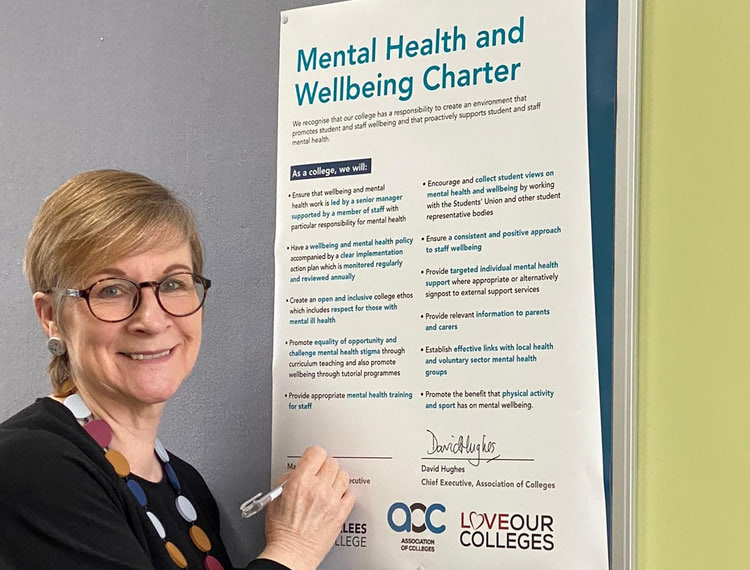Kirklees College makes commitment to support students and staff with their mental health and wellbeing

Kirklees College (@kirkleescollege) has reaffirmed their commitment to staff and students by signing up to a brand new national mental health and wellbeing charter – created by the Association of Colleges in conjunction with mental health experts.
The 11-point document includes commitments to:
- Promoting equality of opportunity and challenging mental health stigma
- Providing appropriate mental health training for staff
- Providing targeted individual mental health support where appropriate
Colleges across England teach and train 2.2 million people each year – including 685,000 young people. Every year, 1 in 10 young people experience a mental health problem and 1 in 5 young people aged 16-24 experience a common mental illness such as anxiety or depression at any one time. Add to these facts, 75% of adults with a diagnosable mental health problem experience their first symptoms before the age of 24 means Kirklees College plays a vital role in supporting the mental health and wellbeing of its 13,000 students and 1,000 staff.
Marie Gilluley, Principal and Chief Executive at Kirklees College, said:
“Creating a supportive and nurturing learning environment is a key theme of our college values and is at the heart of all we do at Kirklees College. We recognise that mental health is a serious concern, which is why we are proud to partner with the Association of Colleges in support of this charter to pledge our support to addressing mental health issues across the college community.”
Richard Caulfield, Mental Health lead at the Association of Colleges, said:
“Every single day colleges like Kirklees College provide a world class education and transform the lives of millions of people. This includes providing support for both staff and student wellbeing at the right time, in the right place. This charter gives colleges the chance to publicly state their commitment to the mental health agenda.”











Responses